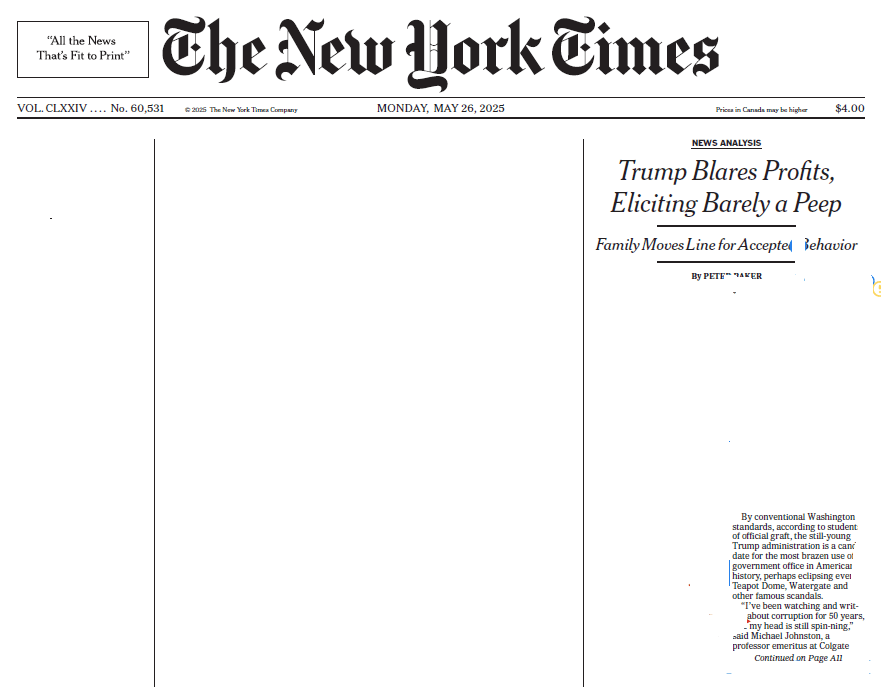Of the many credible corruption and conflict-of-interest allegations against former President Donald Trump, some of the most prominent concerned the income that the Trump Organization earned from parties with interests in influencing U.S. government policy. While the general conflict-of-interest rules that cover most federal officials do not apply to the President, a subset of the Trump Organization’s business dealings—in particular, those involving foreign governments and state governments—at least arguably violated the U.S. Constitution’s two so-called “Emoluments Clauses. (The Foreign Emoluments Clause prohibits any U.S. official from receiving gifts, titles, or “emoluments” from foreign governments, while the Domestic Emoluments Clause prohibits the President in particular from receiving any benefits other than his official salary from federal, state, or local governments.) President Trump’s alleged violations of the Emoluments Clauses triggered three separate lawsuits, filed by different parties in different federal courts, within Trump’s first six months in office. Those cases gradually wound their way through the legal system, with some defeats and some victories, mainly on threshold legal questions.
Last week, the U.S. Supreme Court brought that whole process to a halt, dismissing petitions for review in two of those pending cases as moot. (The third case had been dismissed by an appeals court, and the Supreme Court declined to review that case last fall.) Thought the Court’s terse, unsigned order included no explanation, the obvious inference is that the Court determined that the Emoluments Clause suits were moot because Donald Trump is no longer President. Importantly, the Court’s mootness order means not only that these suits won’t proceed, but also that the previous legal rulings in the cases under review are vacated, and thus have no precedential value. Legally speaking, it’s as if the cases never happened.
This did not sit well with everyone. Former head of the Office on Government Ethics Walter Shaub described the Court’s dismissal of the cases as “insane,” arguing that the cases are “not moot” because Trump “still has the money.” “When any other federal employee violates the emoluments clause,” Shaub observed, “they have to forfeit the money.” Others involved in the litigation against Trump tried to look on the bright side. The Citizens for Responsibility and Ethics in Washington (CREW), for example, issued a statement noting that the Emoluments Clause litigation “made the American people aware for four years of the pervasive corruption that came from a president … taking benefits and payments from foreign and domestic governments.”
I’ve been trying to figure out what I think about all this. I don’t have a clear, clean bottom line, but I do have a few scattered thoughts about what we might take away from the denouement of the Emoluments Clause controversy. Continue reading →
